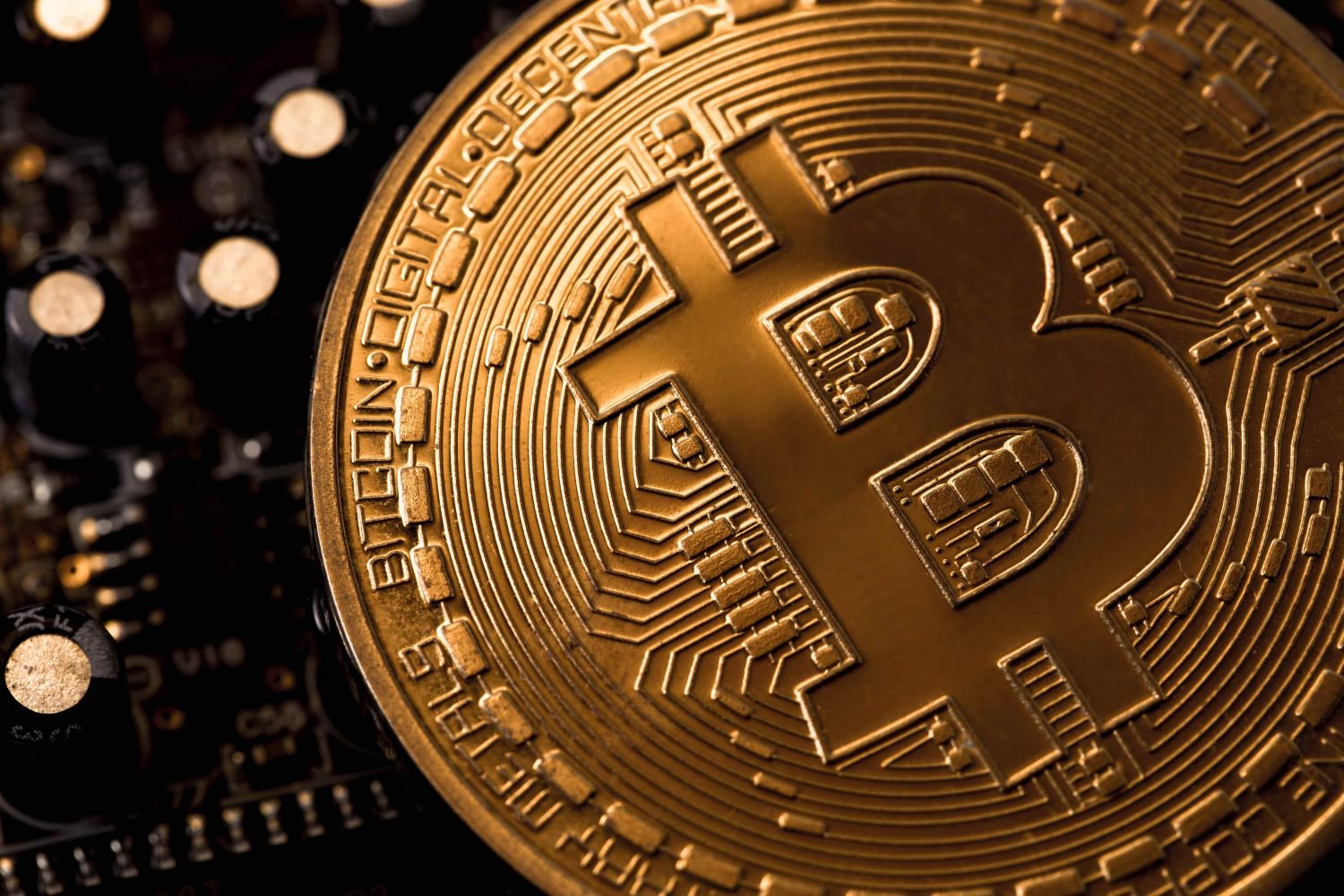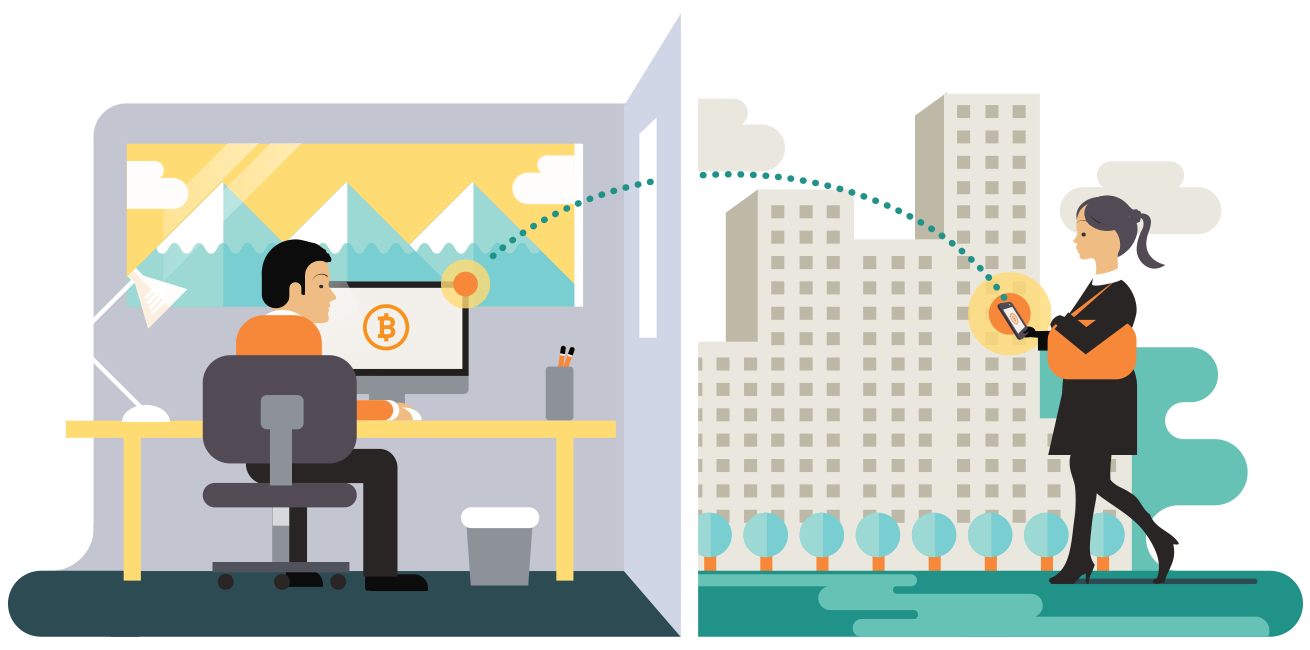Crypto for Starters: Pt. 1 - What is this Bitcoin thing?
Hi, I'm new to Steemit but have been around in the crypto space for quite a while.
After answering many questions on reddit, 4chan and other forums and boards, I thought maybe it is time to sum those tips and tricks up and help freshly joined crypto enthusiasts finding their way around all those buzzwords.
Please note though that I am definitely not an expert on anything and are mostly talking out of own experience - so feel free to correct me or engage in a discussion in the comments.
I plan on issueing these articles on a regular basis - each time with a different topic. So let's start with the obvious one first:

WHAT IS BITCOIN AND WHY DO PEOPLE SAY IT WILL CHANGE THE WORLD??
I strongly advise you to watch the film Banking on Bitcoin - a 90 minute documentary about the ideology and visions which created the first actually usable cryptocurrency. It also makes you familiar with some of the big names in the crypto space.
Bitcoin is TRUSTLESS
In a nutshell, Bitcoin is a (very successful) experiment of a new form of money. Unlike traditional currencies (so called fiat) Bitcoin does not need a centralized 3rd party (like a bank) to confirm your payments - this job is done by the network and its users itself. It enables its users to send money to each other directly without the re-route through a trusted body. Kinda like cash that never sees a bank!
Bitcoin is DECENTRALISED
As mentioned above, no central institute is required for the Bitcoin network to operate. Much like in a peer-to-peer network, a massive grid of users, nodes and miners build the network with no central servers required. This in combination with an open source code makes it impossible to hack (as of getting unallowed access to its central server) or go offline (unless malicious users would take over or the internet would go offline but that is another story).
Bitcoin is ANONYMOUS
This is a risky statement to be quite honest. I prefer the more correct term pseudonymous. All transactions are visible to anyone. Literally anyone. E.g. go and visit blockchain.info and you will find all the transactions currently going on and a full backlog of all transactions ever made!
The thing is, you won't know which public key (sorta your account number) belongs to which real world person. But once an account interferes with its real world identity you could check every transaction this person has ever made from this account.
This happens e.g. when your friend sends you half your dinner bill, when you pay your landlord or simply when you convert fiat into bitcoins (most trustworthy exchanges require a KYC - Know Your Customer ID check).
As you can see from the points above, Bitcoin has a lot going for it. Created by Cypherpunks it attempts to take the power of money off big institutions and gives it back to the individual. It has a lot in common with the current net neutrality debate.

SO HOW DOES IT WORK??
Okay, so here comes the difficult bit. I will try and explain this very briefly without going into too much detail. There is a lot of more complex literature out there if you are interested in the coding and IT behind it but I will try and explain it beginner friendly here. I might go into more detail in future articles if there should be interest.
The BLOCKCHAIN
The blockchain is an open ledger. It is basically a very long list containing every transaction ever made on the Bitcoin network. It grows permanently, every hour and every day. It is currently around 130 GB of data.
Roughly every 10 minutes a block gets added to the blockchain. You can imagine a block as another sheet of paper with transactions made in those 10 minutes that get added to the blockchain "list".
Transaction CONFIRMATIONS
If you have made a bitcoin transaction you probably noticed the confirmations it took until your counterparty successfully received the funds. A confirmation is basically added with every block on top of the one that contained your transaction. So roughly every 10 minutes your transaction gets another confirmation.
As soon as your bitcoin transaction is broadcasted and included in a block (1 confirmation), it is theoretically final and not reversable and no confirmations are needed. The reason why shops, exchanges or light wallets wait for more confirmations is to ensure that this block containing your transaction was not attached by a malicious miner and could possibly be invalid. By waiting for the blockchain to grow a bit further, they can be sure that the block broadcasted has been accepted by more than 50% of the network.
NODES and MINERS
A node is basically a user in the Bitcoin peer-to-peer network. You can run your own node by downloading the blockchain and connecting it to the rest of the network. It is used to broadcast transactions utilized by most wallets.
A miner plays a very important role in the network. These specially set up nodes take the collected transactions from the mem pool (the pool of outstanding transactions, not yet included in any block) and compile them into a block to then attach to the blockchain. Without miners, no transaction would ever be possible or being confirmed. For this service, miners get rewarded (currently 12.5 BTC per block) by newly generated bitcoins, although this reward halfes every 210,000 blocks so no further bitcoins will be generated once there are 21,000,000 in total.
Additionally miners get miner fees, a fee voluntarily paid by the node who broadcasts the transaction. Logically if there are more transactions waiting in the Mempool than would fit in the next block, the ones with the highest transaction fees will be prioritized.

HOW DO I USE IT??
Get a wallet
There are many good and functional wallets out there. Electrum is a widely appreciated one.
Generate a seed and / or a private key and public key
The wallet will generate a Seed for you from which a private key is derived. This is your pin number if you want so. It is required to broadcast any transactions to the network. Keep it safe, whoever has access to your private key has access to all your funds. Make backups on a piece of paper, a USB stick, etc.
View your public key
This can be seen as your account number. You share this key with others to receive funds and others will see this address if you send them funds.
Get some coins!
Coinbase is widely accepted as easily accessible fiat / bitcoin exchange. After buying some bitcoins, just withdraw them to your freshly generated wallet.
Spend / hodl / accumulate / trade
The coins are now yours. Have fun and enjoy your first bitcoins!
I hope this guide helps some of you to find your way into the world of crypto which can seem to be very overwhelming in the beginning (at least it did to me!)
Please leave your comments and let me know what you want me to write about next - I was thinking a collection of useful links to navigate around the crypto world!
The unleashed power of the atom has changed everything save our modes of thinking and we thus drift toward unparalleled catastrophe.
- Albert Einstein